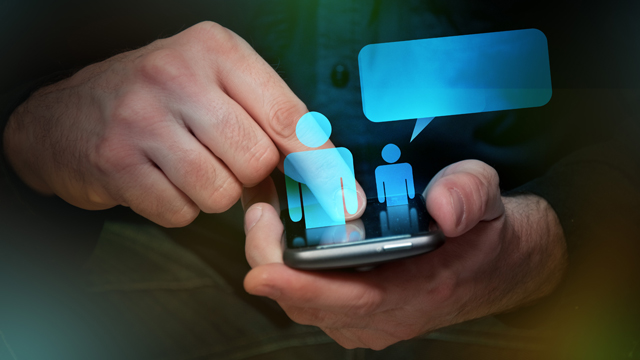
Have you ever been catching up with a friend, in the middle of sharing a great story when their gaze wanders down to the smartphone buzzing on the table? You continue on with your story in hopes that they are listening. But are they? Have you ever been guilty of the same offense?
In any given moment, we may be beckoned by our electronic devices to check our email, reply to a text message, or check social media websites. Deciding whether it’s necessary to take a look is tricky. The desire to check our phones can be overwhelming.
Psychologist, Larry Rosen, Ph.D., conducted a study on a group of 300 students (from middle school to college) to learn more about how technology affects our ability to focus. For the short duration of the experiment, students were asked to study something while in their natural environment. Researchers noted their activities minute to minute. What they found was interesting. On average, students were only able to stay on task for three minutes at a time. Nearly every single distraction that interrupted their focus was technology, namely smartphones and laptops.
The inability to focus is not limited to the world of academia. It affects us at work, at home with our families, or when we are in the company of friends. Dr. Rosen has given a name to this phenomenon after decades of similar studies about the effects of daily media use on the brain’s ability to process information and relate to the world. He calls it “iDisorder,’ which results in signs of stress, sleeplessness, and compulsive reliance on technology.
Smartphones make us feel connected. And in some ways we are. They help us easily keep up with those we care about. We crave this connection, but technology creates an illusion, a substitute for meaningful life connections and real relationships. These connections make us feel truly valued and worthy, which builds self-confidence. It’s no wonder then that as we increasingly seek validation from virtual experiences, mental health professionals are witnessing a rise in patients who wrestle with tech-driven addictions.
Kabbalists often speak about the importance of connection—we connect to energy available during certain times of the year, we connect with others, we connect to the Creator. Yet, in this world of hyper-connectivity, we can become distracted. We substitute online interaction for the genuine connection we really crave in order to avoid feeling uncomfortable emotions like stress, fear, pain, or doubt. In truth, however, real connection is the precise antidote for these feelings. Connecting with people makes us feel valued. Connecting with a real-life experience can give us lasting fulfillment; a smartphone simply cannot compete.
Technology isn’t going away; if anything, it will play an increasingly larger role in our professional and privates lives. The key is not to withdraw entirely from technology—it provides us with valuable information and tools for our modern way of living and can foster connections with others. Noticing when we bypass opportunities for real connection for the sake of being more present in our cyber worlds is important. By doing so, we can better recognize when to use our smartphones and when to put them aside. In essence, we may need to disconnect in order to consciously connect.
Be present when dealing with people in person. Make eye contact; putting your smartphone away sends a message that they are important and you are ready to listen. If you are expecting a phone call, let them know and only disrupt the conversation for that particular call. Schedule technology breaks into your day. Whatever pressing matter enters your inbox can wait until you finish cooking dinner, rooting for your daughter’s soccer team, or walking the dog.
It’s reassuring to keep a cell phone nearby in case of an emergency. But take note of when you reach for it and why. Is it out of boredom? Insecurity? Loneliness? These emotions are normal. Engaging in social media or a quick text correspondence may temporarily assuage those feelings, but true connection is seldom fostered through these means. Try calling a friend to set up a time to catch up or sending an email to a relative inquiring about what is new in their life.
Obviously, there is no such thing as being too connected to the Creator. But by paying close attention to how we use technology, we can connect to others with purpose and consciousness.
